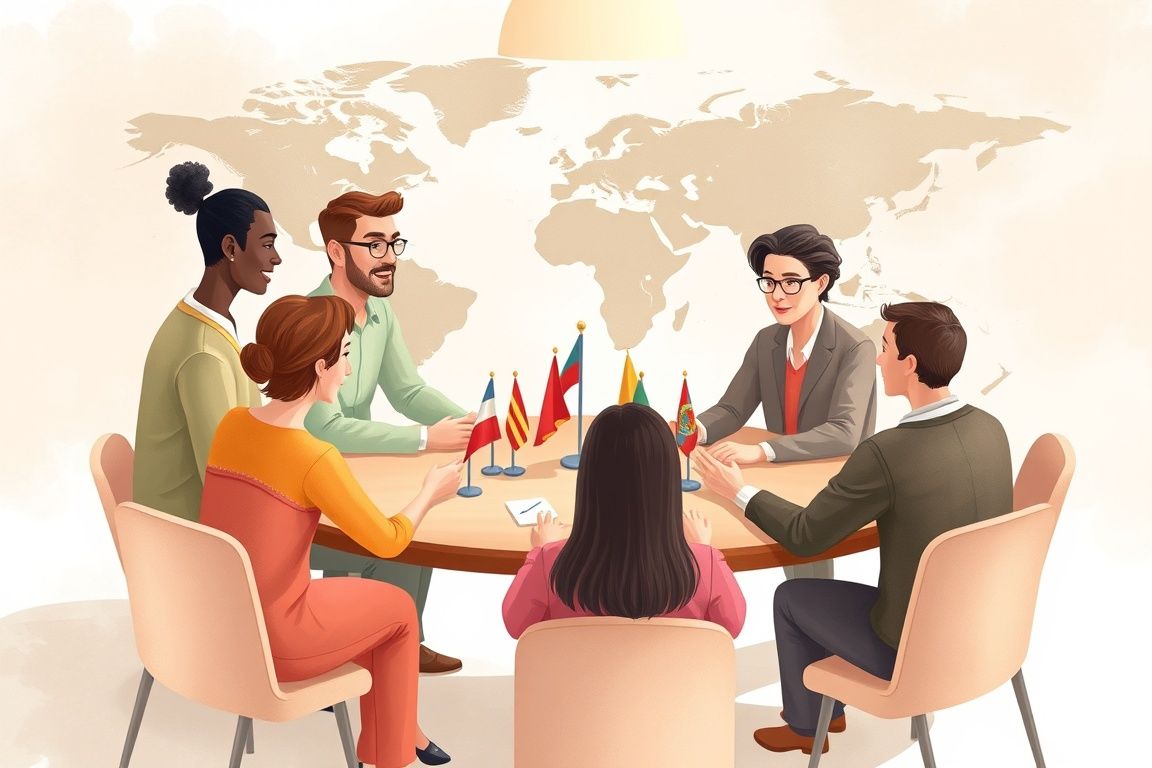Introduction to International Relations

This course provides a foundational understanding of global politics and diplomacy. Participants will explore the key actors—nation-states, international organizations, and non-governmental entities—and how they interact in the international arena.
Why It’s Worth It
Gain a solid foundation in international relations, enhancing both personal knowledge and professional skills.
Understand key global actors and their interactions, crucial for careers in international diplomacy or political science.
Develop critical analytical skills needed to navigate today's complex global challenges.
Your Learning Roadmap
Foundations of International Relations
This module provides an opening into the study of International Relations by discussing important paradigms, foundational theories, and the historical context that set the stage for global political analysis. Participants will gain an understanding of why IR matters, and how ideas and power dynamics have evolved over time. The module lays the groundwork for the rest of the course, ensuring that learners have a solid conceptual base to build upon. Introduction to International Relations Theoretical Approaches Historical Context and Evolution
Nation-states and Sovereignty
This module focuses on the primary role played by nation-states in the international arena, delving into the mysteries of sovereignty and power. It explains the rationale behind state interests and diplomatic missions. Learners will gain an appreciation for how national strategies influence global outcomes and policy-making. Nation-state Dynamics Sovereignty and Power State Interests and Diplomacy
International Organizations
This module delves into the role of organizations such as the United Nations and regional bodies in shaping international norms. It illustrates how these institutions function as platforms for dialogue and global problem-solving. By understanding these organizations, learners will appreciate the collaborative mechanisms behind global governance. The United Nations System Regional Organizations Global Governance and Cooperation
Diplomacy and International Negotiation
This module examines the tools and techniques of diplomacy, emphasizing negotiation strategies and crisis management. You will learn about the role of dialogue in preventing conflict and promoting cooperative solutions. The lessons provide practical insights into the conduct of international negotiations, enhancing your understanding of statecraft. Diplomatic Practices Negotiation Strategies Crisis Management
Non-governmental Actors and Global Issues
This module investigates the impact of non-governmental organizations and transnational networks on global politics. It discusses how these actors contribute to addressing worldwide challenges such as environmental degradation and human rights. The insights gained here will broaden your understanding of the complex interplay between state and non-state influences in international affairs. NGOs and Civil Society Transnational Networks Global Challenges and Future Trends
What Users Are Saying
All You Need to Know
Join the International Relations Course
Learn at your own pace with flexible scheduling.
Engage with real-time assistance for deeper understanding.
Receive instant feedback on your queries and challenges.
Connect theoretical concepts with practical examples.
Explore a diverse range of global topics and issues.
Access a structured curriculum fostering critical thinking.
